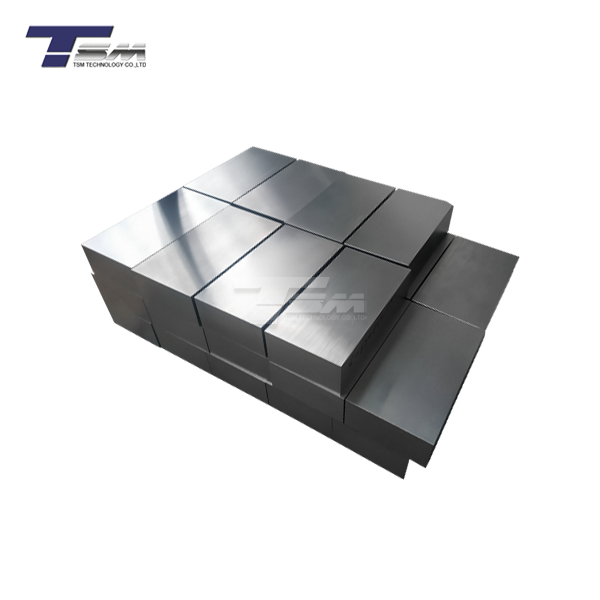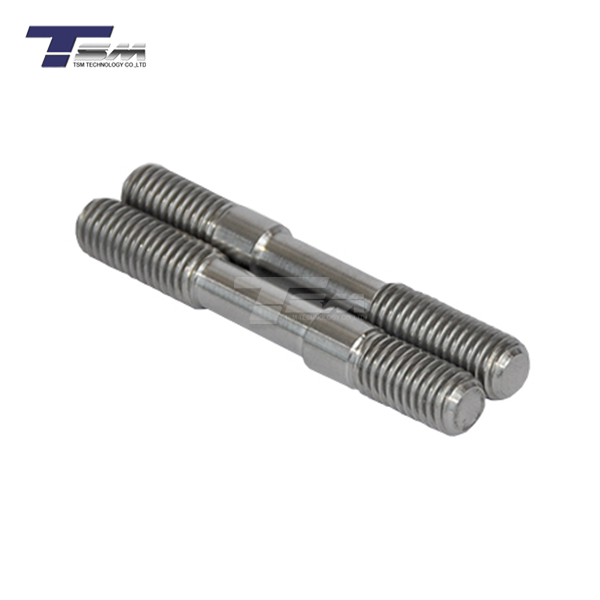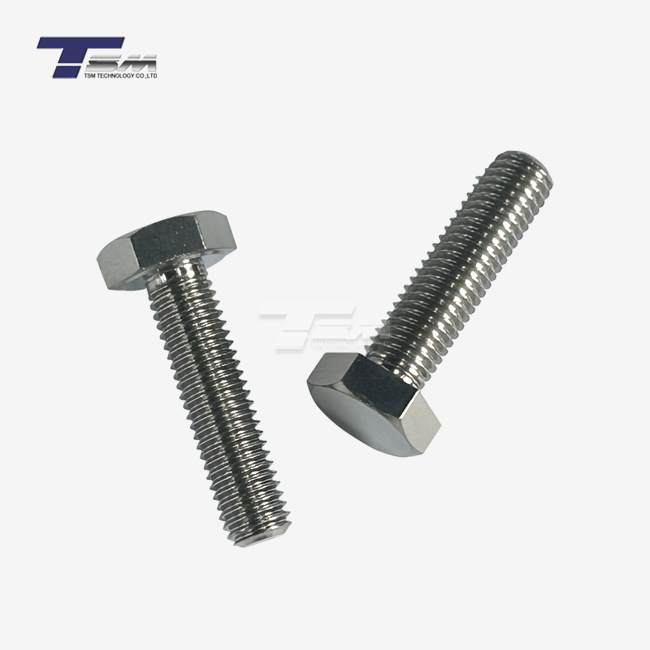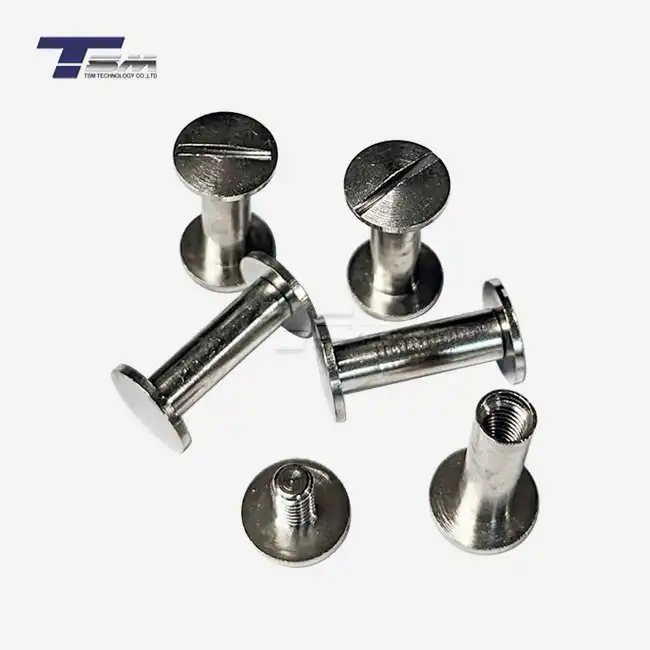Composition and Microstructure of Inconel 718 Bar Stock
Chemical Composition and Its Impact on High-Temperature Properties
The exceptional high-temperature strength of Inconel 718 bar stock stems from its carefully engineered chemical composition. This nickel-chromium-based superalloy typically contains 50-55% nickel, 17-21% chromium, 4.75-5.5% niobium, and smaller amounts of molybdenum, titanium, and aluminum. The presence of these elements in precise proportions contributes to the formation of strengthening precipitates, which are crucial for maintaining mechanical properties at elevated temperatures.

Niobium plays a pivotal role in the alloy's high-temperature performance. It forms gamma double prime (γ") precipitates, which are primarily responsible for the alloy's strength at temperatures up to 1300°F (704°C). The chromium content enhances corrosion resistance, while molybdenum improves overall strength and resistance to pitting corrosion. Titanium and aluminum contribute to the formation of gamma prime (γ') precipitates, further enhancing the alloy's strength and creep resistance.
Microstructural Evolution at High Temperatures
The microstructure of Inconel 718 bars undergoes significant changes when exposed to high temperatures. Initially, the alloy consists of a face-centered cubic (FCC) austenitic matrix (γ phase) with a dispersion of fine precipitates. As the temperature increases, the precipitates evolve, influencing the alloy's mechanical properties.
At temperatures between 1100°F (593°C) and 1300°F (704°C), the γ" precipitates begin to coarsen, which can lead to a gradual decrease in strength. However, the rate of this coarsening is slow enough to maintain the alloy's excellent properties for extended periods. Above 1300°F (704°C), the γ" precipitates may transform into the more stable delta (δ) phase, which can result in a more pronounced reduction in strength.
Grain Structure and Its Influence on High-Temperature Behavior
The grain structure of Inconel 718 round bar significantly impacts its high-temperature performance. A fine-grained structure generally provides better strength and fatigue resistance at lower temperatures, while a coarser grain structure can enhance creep resistance at higher temperatures. Manufacturers often employ specialized heat treatments and processing techniques to optimize the grain structure for specific applications.
Grain boundary engineering techniques, such as controlled thermomechanical processing, can be used to develop a bimodal grain size distribution. This structure combines the benefits of both fine and coarse grains, resulting in improved overall high-temperature performance. Additionally, the presence of carbides and other secondary phases at grain boundaries can enhance creep resistance by impeding grain boundary sliding at elevated temperatures.
Mechanical Properties of Inconel 718 Bar at Elevated Temperatures
Tensile Strength and Yield Strength Variations with Temperature
Inconel 718 bar exhibits remarkable tensile and yield strength retention at high temperatures. At room temperature, the alloy typically displays a tensile strength of approximately 180-200 ksi (1240-1380 MPa) and a yield strength of 150-170 ksi (1030-1170 MPa). As the temperature increases, these values gradually decrease, but the rate of decline is significantly lower compared to many other alloys.
At 1000°F (538°C), Inconel 718 round bar still maintains a tensile strength of about 145-160 ksi (1000-1100 MPa) and a yield strength of 125-140 ksi (860-965 MPa). Even at 1300°F (704°C), the alloy retains considerable strength, with tensile strength around 100-115 ksi (690-790 MPa) and yield strength of 95-105 ksi (655-725 MPa). This exceptional strength retention makes Inconel 718 bar stock an ideal choice for high-temperature applications in aerospace and power generation industries.
Creep Resistance and Stress Rupture Properties
The creep resistance of Inconel 718 bar is one of its most valuable attributes for high-temperature applications. Creep, the time-dependent deformation under constant stress, becomes a critical factor in material selection for components operating at elevated temperatures for extended periods. Inconel 718 demonstrates superior creep resistance due to its precipitation-strengthened microstructure and the stability of its strengthening phases at high temperatures.
Typical creep rupture strength for Inconel 718 bar at 1200°F (649°C) is approximately 100 ksi (690 MPa) for a 100-hour life and 85 ksi (586 MPa) for a 1000-hour life. At 1300°F (704°C), the alloy still maintains a creep rupture strength of about 75 ksi (517 MPa) for a 100-hour life. These properties make Inconel 718 round bar an excellent choice for components subjected to high stresses at elevated temperatures, such as turbine disks and shafts in gas turbine engines.
Fatigue Behavior at High Temperatures
The fatigue performance of Inconel 718 bar stock at high temperatures is crucial for many applications, particularly in aerospace and power generation. The alloy exhibits excellent fatigue resistance, maintaining its properties under cyclic loading conditions at elevated temperatures. This behavior is attributed to the alloy's high yield strength, good ductility, and the stability of its strengthening precipitates.
At 1000°F (538°C), Inconel 718 round bar typically demonstrates a fatigue strength of about 90-100 ksi (620-690 MPa) at 10^7 cycles. Even at higher temperatures, such as 1300°F (704°C), the alloy retains significant fatigue resistance, with fatigue strength around 60-70 ksi (414-483 MPa) at 10^7 cycles. This exceptional fatigue performance ensures the reliability and longevity of components made from Inconel 718 bar in high-temperature, cyclically loaded applications.
Applications Leveraging the High-Temperature Strength of Inconel 718 Bars
Aerospace Industry: Jet Engine Components
The aerospace industry extensively utilizes Inconel 718 round bars for critical jet engine components due to their outstanding high-temperature strength. Turbine disks, shafts, and fasteners in aircraft engines are often manufactured from Inconel 718 bar stock. These components must withstand extreme temperatures, high stresses, and cyclic loading conditions while maintaining their dimensional stability and mechanical integrity.
In turbine disks, Inconel 718 bars are machined into complex shapes that can withstand the centrifugal forces and thermal stresses experienced during engine operation. The alloy's excellent creep resistance and fatigue strength at elevated temperatures ensure the long-term reliability of these critical components. Additionally, Inconel 718 round bar is used for engine shafts, where its high-temperature strength and resistance to thermal fatigue are crucial for maintaining the engine's structural integrity under varying load conditions.
Power Generation: Gas Turbine Applications
In the power generation sector, Inconel 718 bar finds extensive use in gas turbine applications. The alloy's ability to maintain its mechanical properties at high temperatures makes it ideal for components exposed to the extreme conditions inside gas turbines. Combustion chambers, turbine blades, and exhaust systems often incorporate parts machined from Inconel 718 bar stock.
The high-temperature strength of Inconel 718 bars allows for the design of more efficient gas turbines that can operate at higher temperatures, thereby increasing overall energy conversion efficiency. The alloy's resistance to oxidation and hot corrosion in these environments further enhances its suitability for long-term use in power generation equipment. Components made from Inconel 718 round bar contribute to the improved reliability and extended service life of gas turbines, reducing maintenance costs and downtime.
Oil and Gas Industry: Downhole Tools and Wellhead Equipment
The oil and gas industry benefits significantly from the high-temperature strength of Inconel 718 bar in various applications, particularly in downhole tools and wellhead equipment. These components are subjected to extreme temperatures, pressures, and corrosive environments in deep wells and offshore drilling operations.
Downhole tools, such as measurement-while-drilling (MWD) and logging-while-drilling (LWD) instruments, often incorporate parts machined from Inconel 718 bar stock. The alloy's ability to maintain its mechanical properties at elevated temperatures ensures the reliability of these tools in harsh downhole conditions. Wellhead equipment, including valves, flanges, and connectors, also utilizes Inconel 718 round bar due to its excellent combination of high-temperature strength and corrosion resistance. This helps to maintain the integrity of the wellhead system, preventing leaks and ensuring safe operation under high-pressure, high-temperature conditions.
Conclusion
The exceptional high-temperature strength of Inconel 718 round bars makes them an invaluable material in numerous demanding applications across aerospace, power generation, and oil and gas industries. The alloy's carefully engineered composition and microstructure contribute to its remarkable ability to maintain mechanical properties at elevated temperatures, resisting creep, fatigue, and environmental degradation. As industries continue to push the boundaries of operating conditions, the role of Inconel 718 bar stock in enabling technological advancements and improving efficiency becomes increasingly significant. Its unique combination of properties ensures that Inconel 718 will remain a critical material for high-temperature applications in the foreseeable future, driving innovation and reliability in some of the most challenging engineering environments.
Contact Us
For more information about our high-quality Inconel 718 round bars and other superior alloy products, please don't hesitate to contact TSM TECHNOLOGY at info@tsmnialloy.com. Our team of experts is ready to assist you in finding the perfect solution for your high-temperature application needs.



